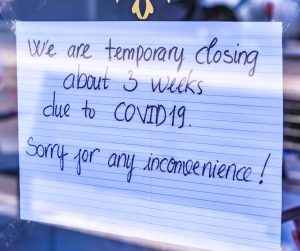Tax implications of a business sale
When embarking on your business sale journey, there are many factors to consider. One of the most important being the tax implications of a business sale. As a business owner, you’ve worked hard to establish your business and grow it into a profitable enterprise. But if you are unfamiliar with the tax implications of a business sale prior to the sale taking place, it’s vital that you discuss your plan with your business Accountant. An underprepared seller could find themselves paying a hefty tax bill at the time of sale, which may have been reduced (or completely avoided) with the right tax preparation.

So, what are the tax implications of a business sale?
Without going into the fine print of the financial side of things (we’ll leave that to your Accountant), it’s important to understand the basic tax considerations when selling a business. These include:
Your business structure
Believe it or not, your business structure has a big part to play in how you are taxed on the sale of your business. For tax purposes, the business sale is considered part of your business’ income. Therefore it will be taxed accordingly in terms of Capital Gains Tax legislation.
It may be more tax advantageous for the owner to sell the shares of the company which owns the business. However, in this case, the due diligence requirements from the buyer will be more comprehensive.
Sole traders and trusts (depending if it is a unit trust or a family trust) will be taxed according to the relevant tax table supplied by the ATO. Whereas company structures will be taxed at the nominal rate of 25% but with possible capital gains tax concessions applicable.
Capital Gains Tax
Regardless of your business structure (sole tradership, partnership, trust, company etc.), capital gains is THE major consideration when considering the tax implications of a business sale. Capital gains is the profit made as a result of the business sale. For instance, if you purchased the business for $100,000 and then sold it for $200,000 – you’d need to pay the applicable capital gains tax (or CGT) on the $100,000 profit you’ve made from the sale.
For some business owners, the CGT can be a large figure (for instance, those who have started the business from scratch at a $0 value, and then sold it at a high price). With that in mind, it is imperative that a seller discuss tax minimisation strategies that are suitable to their business with their Accountant before embarking on the business sale journey. This planning is crucial to ensure that the sale document clearly states the expectation of the sale structure (i.e. business sale or share sale).
Potential tax minimisation strategies
If you’re considered a small business (click here to find out the eligibility criteria from the ATO), you may be eligible for potential tax minimisation strategies on the capital gains tax, such as:
- 50% CGT reduction
- 15-year ownership exemption
- 50% active asset reduction
- Retirement exemption
- Small business rollover concession
All of the above may be suitable for your situation, however, it’s important to plan when it comes to the tax implications of a business sale. Professionals such as business Accountants and business brokers are here to guide you through the process. And here at Core Business Brokers, we’re always happy to help.
If you are looking to sell your business in the near future, contact us to discuss your unique situation today. With over 85 collective years in the industry, our extensive network of professionals will guide you through the process from start to finish. Give us a call on (02) 9413 2977, or email Roy directly at [email protected] or Rad, at [email protected] to begin the discussion today.







